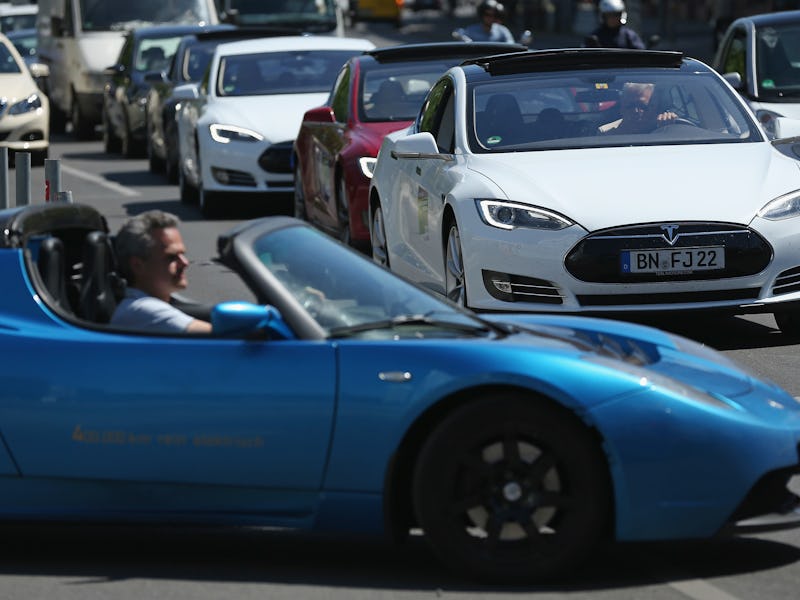Tesla's Chinese Marketing Has Caused Another Autopilot Crash
Mistranslations can have serious consequences.

Tesla’s Autopilot has caused another crash, but this time, it wasn’t the software that failed. Instead, the electric car company’s Chinese marketing had some drivers convinced that the Autopilot feature did a lot more than it actually does.
Tesla makes it clear in its English-language marketing that Autopilot doesn’t turn its cars into autonomous vehicles. In its Chinese-language advertising, however, it suggests that the car will drive itself if its owner uses Autopilot on the road.
That miscommunication led to a crash in Beijing earlier this month. It wasn’t as serious as another Autopilot-related crash that led to a man’s death, as the Chinese vehicle simply hit a parked car, but it’s still a problem for Tesla.
Part of the problem is technological. Tesla is working to improve Autopilot, but it’s still in its early stages. This is what Autopilot would have to handle on a single busy intersection in Beijing:
The highways where Autopilot works best are downright serene in comparison. So the feature is already working at a disadvantage; a mistranslation leading people to put even more stock in Tesla’s capabilities merely compounded the issue. It’s surprising that this is the first we’re hearing of these issues in China.
Tesla doesn’t need the added scrutiny. Congress wants to know how Autopilot will change in response to that fatal crash earlier this year. And despite the company’s efforts to educate people about Autopilot’s limitations, drivers still trust the system enough to fall asleep at the wheel during traffic jams on the highway.
Which isn’t to say that the feature isn’t promising. It helped save a man’s life in July and, according to Tesla founder and chief executive Elon Musk, Autopilot could significantly reduce driving-related deaths even in its current state.
Tesla might want to find a better translator in the meantime, though.